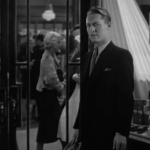 |
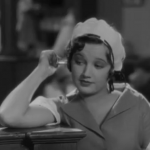 |
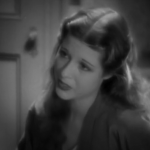 |
| Michael Richard Cromwell |
Dora Arline Judge |
Betty Dorothy Wilson |
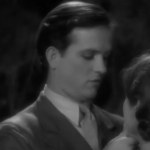 |
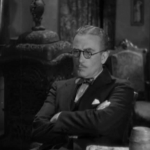 |
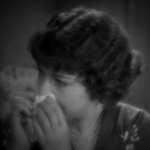 |
| Duke Eric Linden |
Prof. Matthews John Halliday |
Barbara Aileen Pringle |
| Released by RKO | Directed By Gregory La Cava |
||
Proof That It’s Pre-Code
- There is kissing in this film. Some damn good kissing.
- A nice car is like a hotel, but better– “You don’t have to register!”
- “You’d look pretty good with a blanket over your head!”
- “Alright, alright, what about free love?!”
“There’s nothing free about my love, Romeo, just you remember that!” - “I thought you came to college to work your brain.”
“Who cares about brains? I come from a long line of people who work with their hands!”
[slap] - “Well, I don’t want to be honorable with you unless it’s absolutely necessary!”
- “Do people still talk about marriage any more?”
“Some of the older people.” - “Being bright don’t get you nowhere. Just looking dumb.”
- “You’re going to be a swell missionary.”
“What do you mean by that?”
“Well, you arouse my savage instincts!” - Men demonstrating how great the springs are in their car seats to bemused women.
- Woman follows a guy into the men’s restroom.
- “Betty, you’d be much nicer if you loosened your morals!”
“I’d be more comfortable if you loosened your grip.” - “Gosh, I can’t wait to hear you shave!”
- Our lead character gets arraigned for statutory rape.
- “Being decent doesn’t get you anywhere!”
Age of Consent: Damn You, Sexy Proletariat. Damn You!
“If you ask me, it’s more important than food or drink. Yessir. More important.”
Attending college apparently hasn’t changed much between 1932 and now. While the students are doing tic-tac-toe during the classroom lectures, the only thing of any importance on everyone’s mind is sex.
Set at ‘State College’ during what must be springtime, Gregory La Cava’s The Age of Consent takes a look at the experience of secondary education back when it was the provincial breeding ground of the rich and the privileged, with emphasis on the ‘breeding’. Our main character (hero is a bit too kind) is Michael, a nice college kid who is over the moon for Betty and looks distressingly a lot like Franchot Tone. When he should be studying, he sees Betty’s giant face starring back at him, smiling. This must be love.
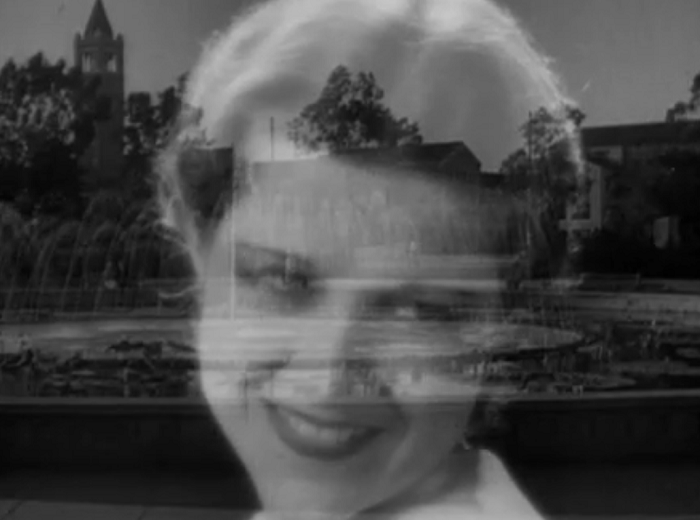
OBEY ME
Or something else along those lines. Micheal’s obsession with Betty isn’t on equal footing though. The college braggart, Duke (the one who compares his shiny new car favorably to a hotel), also has his eye on Betty, as well as every other girl on campus, and she’s too polite to say no. That and she thinks that the springs in the seat of his car are too-too divine.
Michael’s complicated love life is met with a dim view by his fraternity brothers as well as his mentor, Professor Wilson. Michael wants Betty to be just his, and he wants all of her. This being the 1930s, the only way to properly capture her virtue involves wedding bells and leaving college, so it’s a delicate negotiation. Since it’s the 30s, again, the difference between their choices are merely their career paths. Parental disappointment, magically, doesn’t even figure in. And while they may lose a few opportunities ditching college, really, they obviously don’t have much to worry about– they had to have gotten their tuition from somewhere.
But that only means that hormones are a much larger factor than usual. The sexual discourse is this film is fairly frank for a movie from this time. It’s still shrouded in euphemisms, of course, but it’s equal opportunity. Everyone wants to knock boots, even lonely Professor Wilson who once had a fling with a mathematics teacher. He reeks of regret and frustration, which probably isn’t helping Michael in his attempts to remain chaste and get out with a degree.
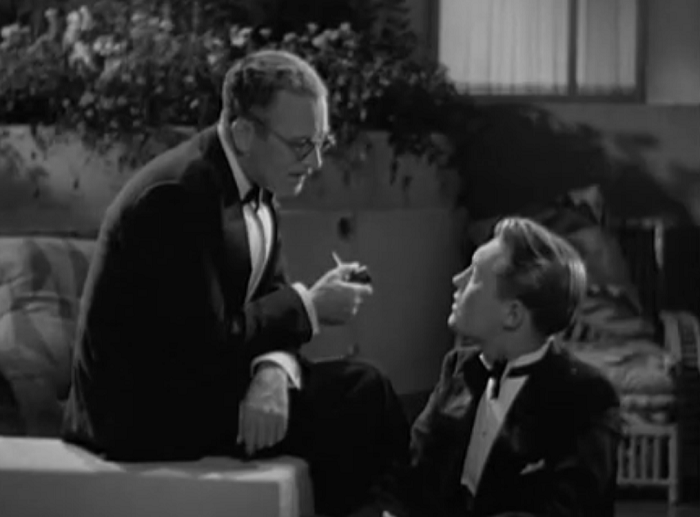
“You must run from women, son. Die alone and afraid!”
Most of the characters in the movie argue for ‘free love’, which, as we adults all know, ain’t free and ain’t ‘love’. But these students’ lack of responsibilities feed into this, as does the sense of competition between one another and, of course, copious consumption of ‘liquid excitement’. Besides the fact that we barely get two minutes in the classroom (in a scene that also includes waking one poor guy up), the film’s dim view of upper education can be fully witnessed when we see a bird perched on a statue of the college’s founder. On his head. Just waiting for that camera to cut away so that it can do its business.
That feeds into the most interesting thing about Age of Consent. It’s not the revelation that college students are and always have been horny, but the movie is really about the relations between those with money to spare in college and those unfortunate ‘townies’ who have to make due. At Michael’s favorite soda shop is a waitress Dora, who is a few years younger than him but very flirtatious. She talks about how half of her time is spent waiting tables, the other half fighting off horny coeds.
Dora enters the story to poke at the bubble of upper education. While Michael’s troubles reconciling his short term lust and long term goals are frustrating to him, Dora’s life lacks any options. The college students who want a tumble with her aren’t going to give her a relationship, and her most attractive marriage option is the assistant iceman. Dora also seems to be missing a mother and a father figure 90% of the time, cinematic shorthand for a heart that’s slightly off balanced and a consuming desire to feel a connection to someone.
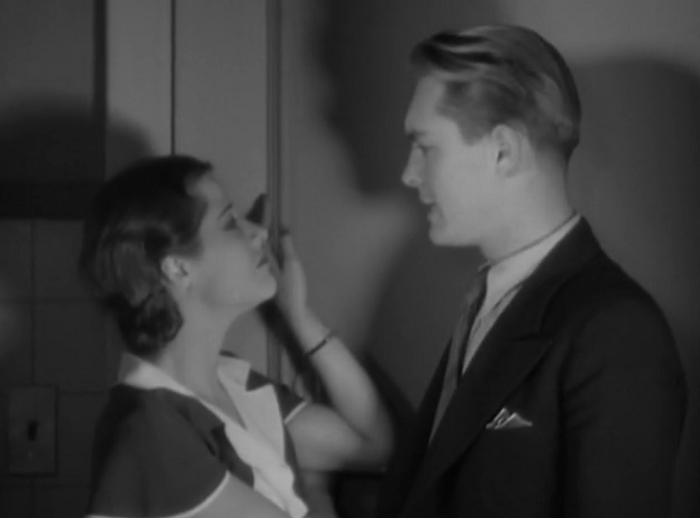
Age of Consent: a film about the heavy toll of heavy petting.
Michael is seduced by Dora after he’s had one particularly bad night with Betty. And I do say seduced– she asks him to walk her home one late night, and upon his refusal, adjusts her garter just outside the front window. She sneaks a couple of glances at him in the process just to make sure he sees the bait, and he falls for it, hook, line and sinker.
In the meantime, Betty has a change of heart and decides that she will marry Michael and join him in dropping out of college. She tries to phone him the good news, but he’s over at Dora’s house, where she’s unearthed her father’s alcohol and the two promise each other a hot night. They fall on a couch and gaze intently. A pan to the radio and a quick fade kicks us several hours into the future, where both agree that they don’t regret what just happened.
But they soon will.
Spoilers.
Just as the two are recovering from their tryst, they look over to find Dora’s father glowering above them. He calls the police– Dora’s a minor! — and soon the man has given Michael an ultimatum: jail or marriage to Dora. Professor Wilson is called in to help try and mediate, but his moral presuppositions only put Michael further onto the shit heap. Forcing Michael into a loveless marriage is shitty, yes, but Michael’s violation of his daughter offers him no other way to save Dora’s virtue and his own good name. The class differences between Wilson and Dora’s father only illustrate the gulf in morality, with neither side being explicitly ‘right’. Dora remains silent. Michael panics.
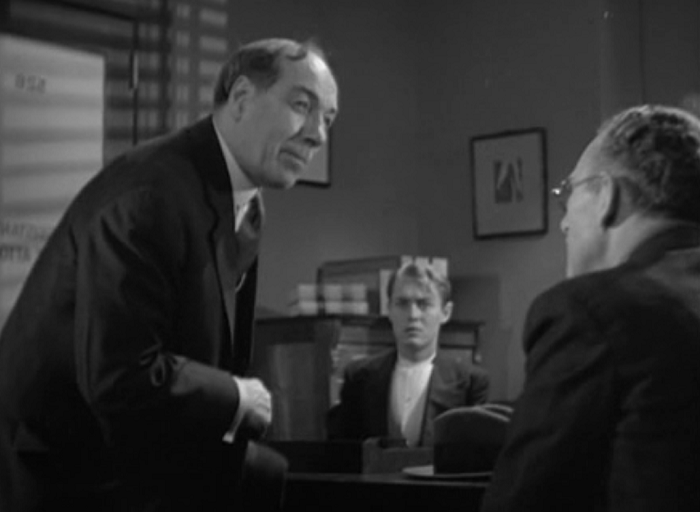
“It’s the moral thing!” “What’s morality?” “Now don’t start that again!”
The movie then gets a little convoluted to save Michael’s neck. Duke takes Betty joyriding to help her forget Michael’s betrayal (in his first decent act of the movie) but wrecks the car, putting them both in the hospital. Seeing how much Michael cries and pleads over Betty’s injuries, Dora confronts her father. It’s a rather stunning scene, as Dora challenges her father’s religious convictions without ever specifying them precisely (a dance done for the sake of appeasing a dozen censor boards, I’m sure). Seeing Duke’s death, she decries a God who would kill a bad person when doing a good thing. Further extrapolating, she says that she made a mistake by sleeping with Michael, and it was hers to make. Maybe if dad spent some more time around the house, she’d have known better, but she’ll try to keep her legs closed. And let’s never talk about this again. It’s both a conservative and liberal moment, an admission of guilt, and a reconciliation with a proud man whose run the gamut of emotion in a brief 24-hour period.
It’s interesting that it’s Dora who makes the final decision to overcome her father’s moralizing. She has the most to lose here: she clearly does care about Michael, and the odds are pretty good that there weren’t any prophylactics used the night before. It’s a rare chance for agency for a character who, in most movies, would either be busy manipulating and throwing a tantrum.
It also has the uncanny effect of making the movie feel like its circling the wagons on keeping the classes separate. Dora, though she never had any such stated intentions, wouldn’t be blamed for being mistaken for a gold digger. She refuses such a route, though, rededicating herself to her father and her chastity, hoping that will find her another Michael– but a better one this time.
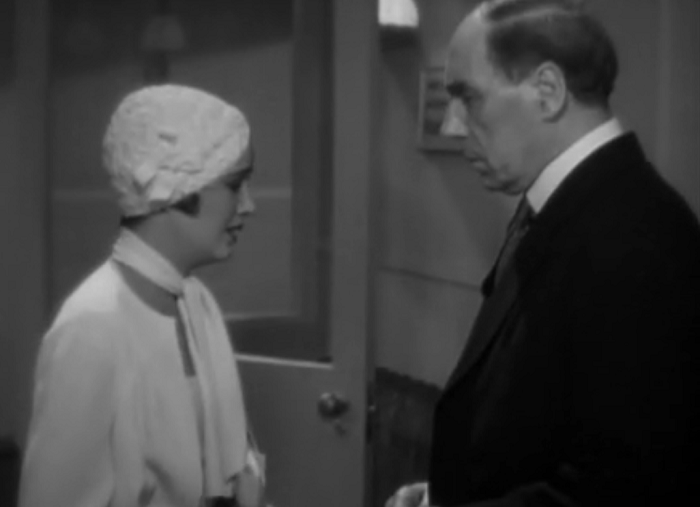
“This Michael business is baloney. I’m gonna go find me a Diego.”
In the end, all of the characters are pretty okay. They’re merely humans with desires, some of which they only barely understand how to express. Betty and Michael end up running off together, succumbing to their passions in lieu of careers. And while there’s a distinct chance this won’t end well, the movie still celebrates for them. Professor Wilson and his ex wave goodbye and even clasp hands, perhaps indicating that passion can be re-awoken, especially after exposure to secondhand sexual hijinks.
That plays into another aspect of Age of Consent that really works. The film is about passion as much as lust; eschewing a lot of overly romantic crap, the movie understands that love can just die. Betty and Michael are just as terrified of falling out of love as entering a bad marriage. It demonstrates a desperate need for more than just financial security in uncertain times, but also the intelligence needed to navigate an emotional brinkmanship that seems rather depressingly true.
It’s hard not to compare Age of Consent to some of its pre-Code brethren. Both Illicit and Ex-Lady explore sexual ‘free’ love between a man and a woman, and also look at the consequences of affairs. If the film’s ending leaves a bad taste in your mouth, I highly suggest Frank Borzage’s Bad Girl from the same year, which also features a young couple that spends the night together, though its depiction of the aftermath is much more heartrending. But I’d still put Consent high in this company, managing to balance humor and warmth with a well matched display of ambiguity and desire between a group of confused, lonely kids.
End spoilers.
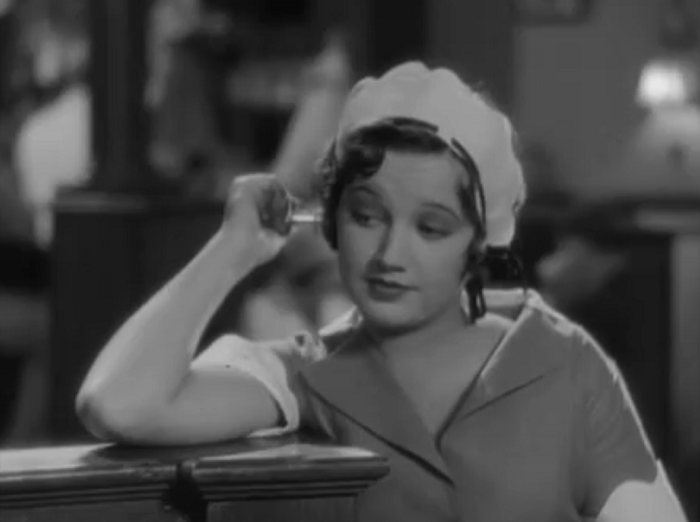
As I’ve always said, it’s hard to resist a woman in uniform.
There’s a tendency when discussing pre-Code movies to talk about how much flesh is on display and end the discussion there. Compared to Joan Blondell’s scanty outfits, visually, Age of Consent probably wouldn’t look too out of place from movies made a few years later. But the conversations here between the college students– the little emotional chess matches between men and women– are both frank and hilarious. And what little physical intimacy is present is very erotically charged, and not so much in the usual pre-Code playful peek-a-boo sense. While Dora fixing her garter wouldn’t raise an eyebrow in the Busby Berkeley universe, here it’s a show stopper.
Director Gregory La Cava is a blast, best remembered for a movie made a half decade later, My Man Godfrey, but he also handled a lot of diverse fare over his decades of directing, including Gabriel Over the White House, The Affairs of Cellini, and Bed of Roses. He’s joined here by an able cast of fresh faces. None would become stars, but they expertly capture that awkward mix of adolescent bravado and aching vulnerability, with an able assist from the very funny Halliday as the stiff professor who is clearly out of his league in all of this lustful nonsense.
The movie’s title, The Age of Consent, could refer to a couple of things from the movie, whether it’s Michael and Dora’s liaison to that tentative line in the relationship between Michael and Betty. The key word is “consent”, though. It’s an indicator of maturity, something most characters, even the adults in the movie, seem to lack. Whether anyone even truly achieves it by film’s end is up for debate, but that can also be said for so many of the millions of young men and women who head off to college these days. The Age of Consent remains a saucy, fun little time capsule about how much things change between men and women and the rich and the poor– and how many things haven’t.
Trivia & Links
- It’s probably for the best that you don’t mix this up with the 1969 Age of Consent, which is about a young Helen Mirren frolicking nude. Er, and other things, I’m sure.
- Andre Sennwald notes in the original New York Times review: “It is unlikely that modern students will recognize themselves in the sub-sophomoric specimens of college men and women in The Age of Consent.” Uh, which is funny, since I certainly recognized a lot of my college experience there. Maybe that’s because I usually just exist sub-sophomorically.
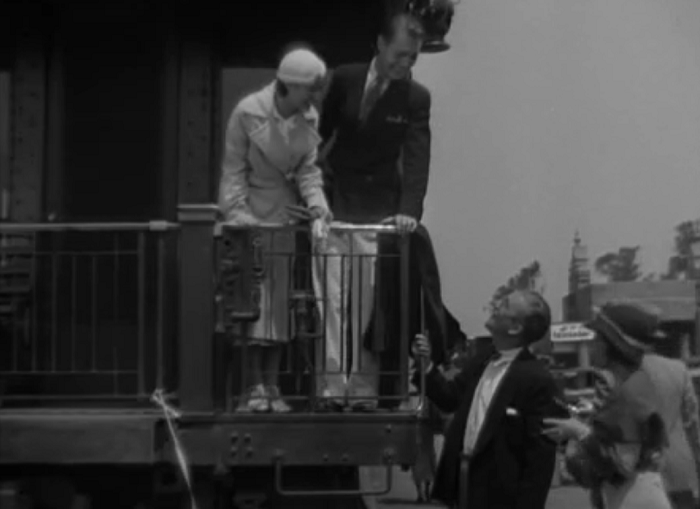
“Good luck with all of your consenting!”
- Glenn Erickson, the DVD Savant, really enjoyed this one too. Besides touching on a lot of the same points I did (probably better than I did, to boot), he has this great bit:
We wish that the Betty and Veronica comic books could have been turned into Pre-code movies, as they seem to have been set in a college atmosphere just like this one but minus the smutty attitudes. Smooth operator Duke might as well be the egotistical Reggie Mantle. Duke gives Mike a razzing outside the soda shop:
Duke: I wish you’d train your women to be on time when I have a date with them.
Mike: I can lead ’em to your trough but I can’t make ’em drink!
- Will McKinley at Cinematically Insane does a great rundown of this one, and also talks about how damned sexy the whole enterprise is.
But the extent to which the young unmarrieds in this film exist as realistic sexual beings is shocking. For 72 steamy minutes, pretty young things talk about sex, pursue sex and, in at least one case, actually have sex. And they all kiss each other like they desperately want to tear off their clothes and get it on.
Even more surprising: the ones who want it the most are the women. That must have raised a lot of Depression Era eyebrows (and blood pressures) in the summer of 1932.
Awards, Accolades & Availability
- This film is available on Amazon via both streaming and disk and over at Warner Archive.
Comment below or join our email subscription list on the sidebar! |
||
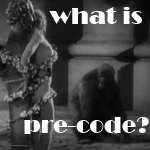 |
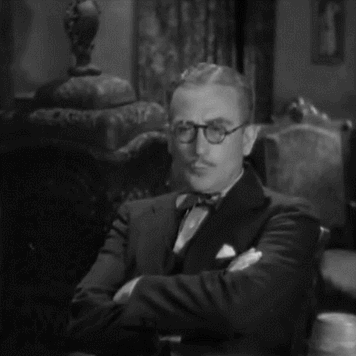 |
 |
 |
 |
|
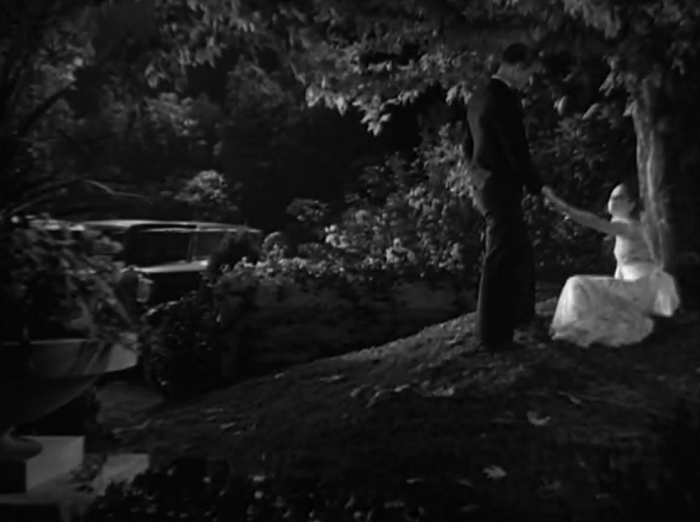

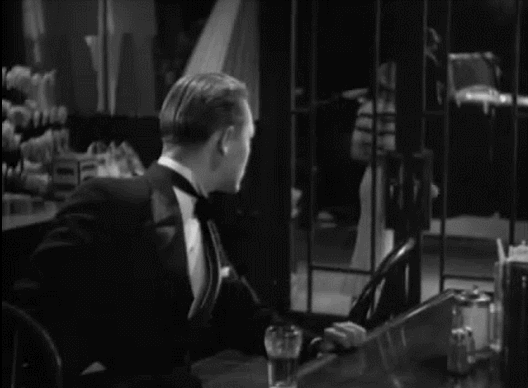


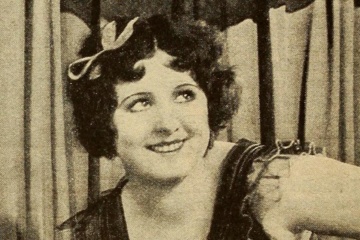
3 Comments
JennyG · September 11, 2014 at 12:06 pm
I am so excited about this film that I am going to stream it the minute this comment is written, when I really should be sleeping or prepping for class. I LOVE college-set pre-codes and never knew about this one until now. My appreciation was set with the ’30 version of Good News at Film Forum in NYC, which ended with live actors reenacting the end (the celluloid is damaged, so they made it up). It was, as you can imagine, beyond-fun.
Danny · September 12, 2014 at 12:35 pm
I hope you liked it!
Bob · August 18, 2019 at 8:17 am
Good analysis of this movie. I recently discovered Dorothy Wilson, whose friendly mixture of innocence and awareness served her well in movies like these. I just watched her in Eight Girls in a Boat, which is set in a Swiss girls school and is packed with beautiful young women in outdoor athletic settings. Dorothy gets pregnant, and the movie’s handling of it is a good example of the more responsible explicitness that pre-code movies allowed.
Comments are closed.